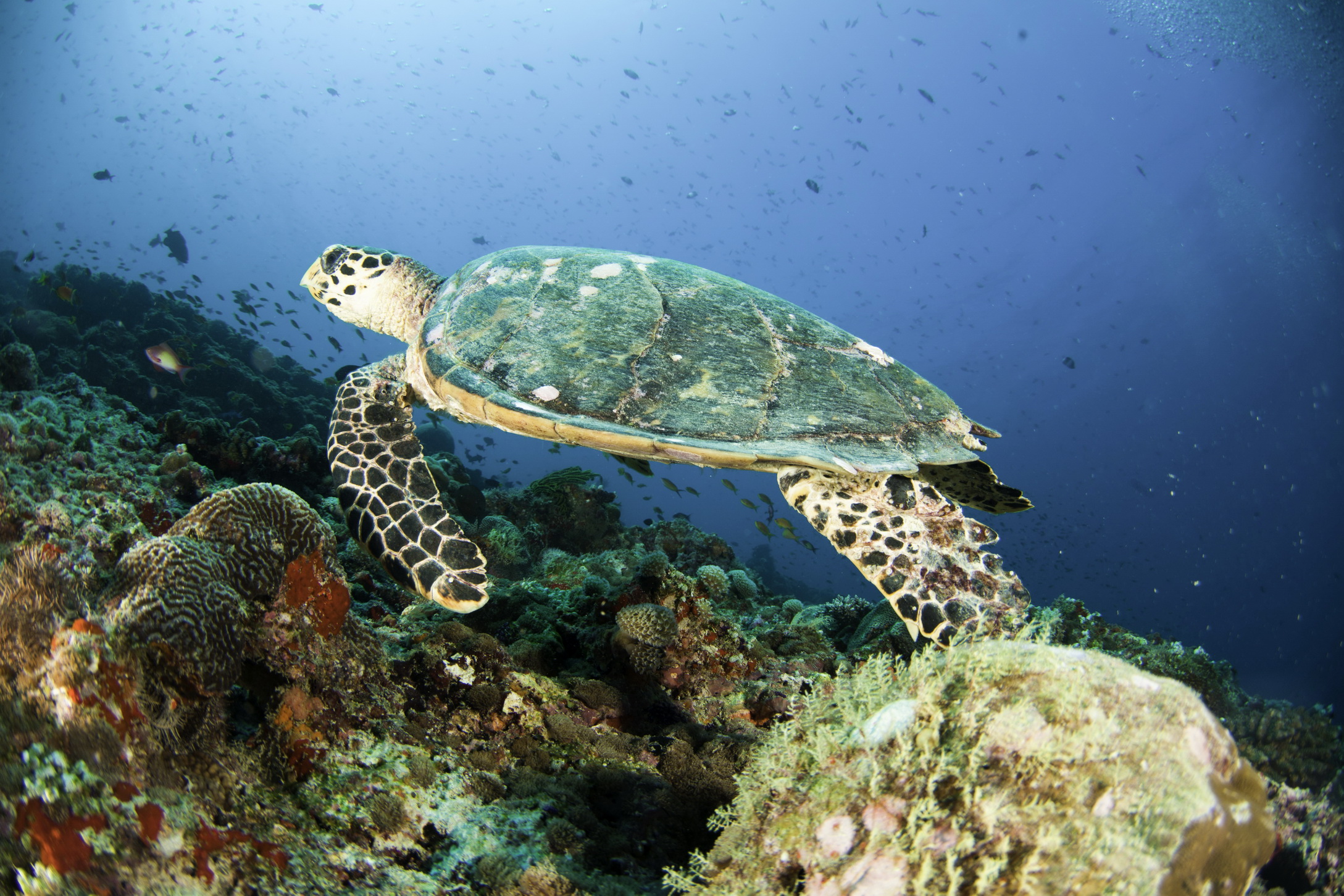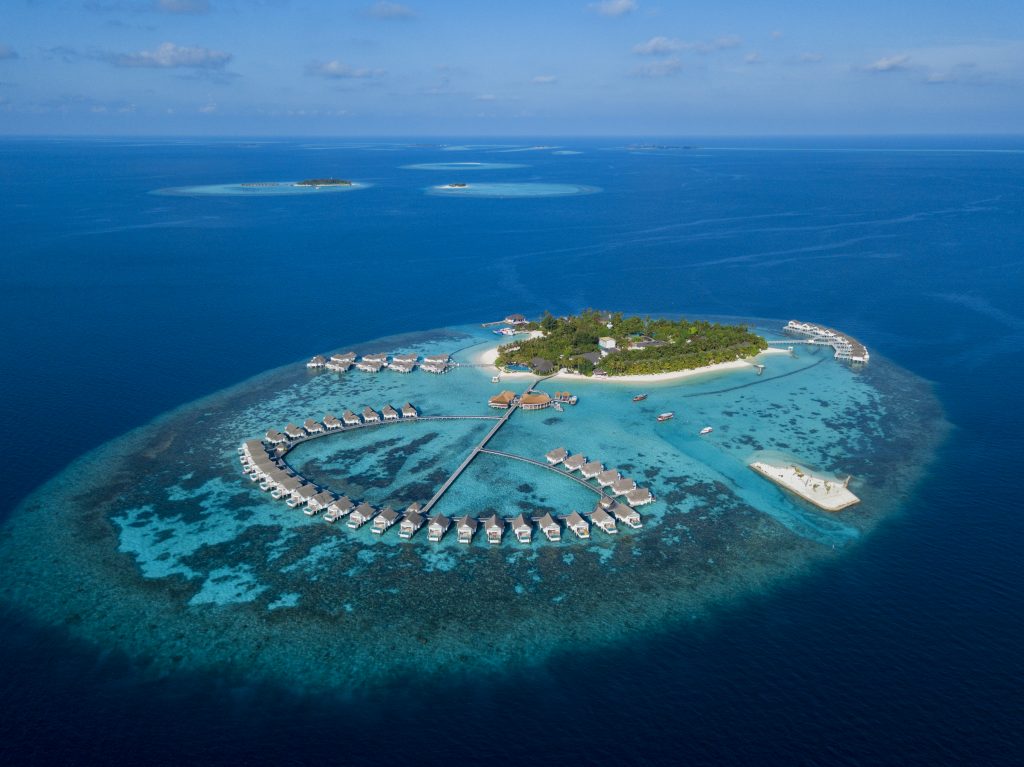Underwater
Maldives ranks 7th in the world for coral reefs

In a recent study conducted by Slingo, Maldives has emerged as the seventh country with the most extensive coral reef areas in the world. The research, which aimed to determine the best countries for adventure holidays based on natural attractions such as volcanoes, coral reefs, and waterfalls, analyzed data to create an ‘adventure score’ for each country.
The study revealed that the top 10 countries with the largest coral reef areas are dominated by Indonesia and Australia, taking the first and second spots, respectively. However, Maldives claimed an impressive seventh position, highlighting the nation’s significant contribution to global coral reef conservation.
With a coral reef area spanning 8,920 square kilometers, Maldives possesses a diverse and vibrant marine ecosystem. Coral reefs are known to cover less than 1% of the ocean floor but support more than 25% of all marine life. For wildlife enthusiasts, exploring these coral reefs offers a thrilling adventure filled with encounters with magnificent creatures such as whales, sea turtles, and thousands of species of fish.
The Maldives’ achievement in this study underscores its commitment to preserving its natural heritage and marine biodiversity. The country has implemented various measures to protect its coral reefs, including the establishment of marine protected areas and the promotion of sustainable tourism practices. These efforts have not only ensured the well-being of marine ecosystems but have also enhanced the tourism industry, which heavily relies on the allure of the Maldivian underwater world.
Indonesia, with 51,020 square kilometers of coral reef area, emerged as the country with the highest percentage of Earth’s coral reefs at 17.95%. Australia closely trailed behind with 48,960 square kilometers of coral reefs, representing 17.22% of the global total. Notably, Australia also boasts the most extensive collection of national parks in the world, with a staggering total of 685.
As the world recognizes the importance of preserving natural wonders, this study serves as a reminder of the environmental significance and global recognition of Maldives’ coral reefs. The Maldivian government, along with local communities and stakeholders, will undoubtedly continue to work tirelessly to safeguard these vital ecosystems and promote sustainable tourism practices, ensuring that future generations can experience the unparalleled beauty of the Maldivian underwater world.
Action
Dive for free at Kandooma, just named Maldives’ leading dive resort

Holiday Inn Resort Kandooma Maldives has been crowned ‘Maldives Leading Dive Resort 2025’ at the prestigious World Travel Awards, marking a major milestone as the inaugural winner of this newly introduced category.
The announcement was made at a glittering gala ceremony held on 29 June in Tanzania, attended by tourism and hospitality leaders from across Africa and the Indian Ocean. The accolade honours Kandooma’s commitment to exceptional diving experiences and innovation in accessible underwater tourism.
“We’re surrounded by some of the most awe-inspiring marine life in the Maldives – it’s truly like diving in a living aquarium,” said Mark Eletr, General Manager of Holiday Inn Resort Kandooma Maldives. “From graceful manta rays and reef sharks to turtles, moray eels, and vast schools of tropical fish, our waters are teeming with life.”
Just minutes from the resort are world-class dive sites including Kandooma Thila, a renowned cleaning station for grey reef sharks; Guraidhoo Corner, famous for its strong currents and pelagic encounters; and Medhu Faru, where divers drift alongside vibrant coral walls. The close proximity of these sites allows for up to three dives a day – ideal for enthusiasts chasing underwater thrills.
Central to Kandooma’s diving success is its bold ‘Dive Free’ initiative – a game-changer for the scuba community. Guests who stay three nights or more and are certified divers receive two complimentary boat dives per day, including equipment and professional guidance.
“Diving can be an expensive pursuit, so we decided to flip the script,” Eletr added. “Our ‘Dive Free’ program removes the barriers and makes the underwater magic of the Maldives accessible to more people than ever.”
Kandooma’s on-site 5-star PADI dive centre offers courses for beginners through to advanced, specialty certifications and refreshers, as well as private excursions for underwater photography, night dives, and wreck explorations.
With its commitment to sustainability, marine preservation, and guest experience, Holiday Inn Resort Kandooma Maldives has proven that world-class diving doesn’t have to come with a luxury price tag – just a sense of adventure.
For more information or to book a diving escape, visit: www.maldives.holidayinnresorts.com
Action
Making waves all summer long: Manta rays, mini explorers take over The Standard, Huruvalhi Maldives

At The Standard, Huruvalhi Maldives, July isn’t just another sunny month – it’s when the ocean comes alive. Manta season is in full swing, and Hanifaru Bay (just a splash away from the resort) becomes host to hundreds of reef manta rays performing underwater ballet. Offering a front row seat to all the action is the resort’s Manta Ray Watching Experience package available through October 31.
Suitable for confident snorkelers aged 12+, the three-hour excursion includes roundtrip speedboat rides and all the ocean wonder you can handle. Located in the Baa Atoll UNESCO Biosphere Reserve, Hanifaru Bay’s shape works like a plankton magnet, drawing in marine life for one of the largest known manta feeding frenzies on the planet. As you float just meters above the action, graceful giants barrel rolling through plankton-rich waters in synchrony, with whale sharks making cameo appearances.
Beyond the waves
Kids under 12 are safe from FOMO with the return of the Summer Camp, running from July 1 to August 31. Creative energy gets channeled into arts, crafts, pottery and even directing resort-wide film shorts. Young adventurers can zen out in Lil’ Yogis, work out on the water with SUP, swing rackets with Tennis Titans or shake it off with Zumba. Mini chefs can dive into sushi, cupcake, pizza and mocktail workshops. And those craving star power can choose between karaoke showdowns and splashy pool parties. Language games and Maldivian drumming sessions sneak in a little learning with all that fun.
Family stays
Awarded the ‘Best Resort for Families’ by T+L Luxury Awards Asia Pacific 2023, The Standard Huruvalhi, Maldives makes finding family-friendly accommodation a breeze. Lagoon Overwater Villas are suspended above crystal-clear waters, Ocean Overwater Villas take you from bed straight to the house reef, and Beach Villas are perfect for private poolside moments in lush tropical greenery. Finally, multigenerational families will find just the right balance of privacy and togetherness at the sprawling
The Standard Residence.
Applicable for two adults and two kids below 12 years old (an additional charge of USD 285 per night applies to older kids), the ‘Families That Stay Together’ package includes accommodation in an overwater or beachfront villa, an All-Inclusive Plus Meal Plan, free water sports, laundry and spa credit. Over at Lil’ Shark Kids Club, youngsters dive into complimentary activities ranging from high-energy fun to creative pursuits – whether ruling the roost in the playroom, splashing in the paddling pool, digging into the sandy park or winding down in the movie den. Beyond daily adventures like cooking classes, babysitting services are also available for $35 per hour.
For more information on the Manta Ray Experience, priced at $250 per person, please click here. For the full summer camp programme, visit the link. To book your accommodation, please click here.
Action
Consistently awarded, beyond compare: Machchafushi Island Resort’s house reef

Recently recognised among the Best House Reefs in the Maldives by the Travel + Leisure Luxury Awards Asia Pacific 2025, the house reef at Machchafushi Island Resort & Spa, The Centara Collection (formerly known as Centara Grand Island Resort & Spa), offers an extraordinary experience for divers and snorkelers alike. The South Ari Atoll in the Maldives is renowned for its exceptional diving sites, snorkelling, and marine adventures, and the resort’s house reef only enhances this natural beauty with its rich marine biodiversity, thriving coral gardens, and easy access from the shore.

The Machchafushi house reef is approximately five times larger than the island itself, encircling a breathtaking lagoon. Most of the coral reef lies on a gentle slope, descending to depths of 15 – 20m, where it then flattens out into a sandy seabed. At around 30m from the top of the reef, guests can explore a remarkable shipwreck. This sunken treasure is home to a variety of marine species, including glassfish, stonefish and nurse sharks.
Among the largest coral species found on any house reef, the Machchafushi house reef is home to rare varieties such as Acropora granulosa and Acropora latistella, found exclusively on the wreck. The surrounding coral gardens showcase vibrant Blue Coral and Staghorn Coral, creating a stunning display of marine biodiversity.

Marine life thrives around the house reef, with seven resident Nurse sharks, including three adults, one sub-adult, and three juveniles. White Tip Reef sharks, the most curious of the reef’s sharks, are often seen coming close to snorkelers and divers. Other notable species include
Black Tip sharks, Lemon sharks, Leopard sharks, Guitar sharks, and various rays. The Black Blotched Stingrays, known for their friendly nature despite their large size, are a common sight, especially around feeding areas and the reef’s shallow waters. The barbless male rays are particularly known for their gentle interactions with guests.

Sustainability is at the heart of Machchafushi Island Resort’s philosophy. Coral protection, reef conservation, and restoration projects are continuously rolled out, ensuring that the house reef remains a thriving ecosystem for future generations. Guests are regularly educated about the reef’s delicate ecosystem, its abundant marine life, and the resort’s ongoing efforts to promote sustainable practices.
Sharing his views, Cluster General Manager of Machchafushi Island Resort and Spa, Francesco Pompilio said, “This honour reflects not only the natural beauty of our house reef, but also the unwavering commitment of our team to its protection and preservation. Sustainability is at the heart of everything we do, and we remain dedicated to safeguarding this vibrant marine sanctuary for generations to come. We are deeply grateful to our guests for their continued trust and patronage.”

Experience the awe-inspiring beauty of Machchafushi Island Resort’s house reef, where exceptional diving, vibrant coral gardens, and abundant marine life meet, all set against the backdrop of the Maldives’ unparalleled natural beauty.
-

 Featured1 week ago
Featured1 week agoSO/ Maldives unveils restorative wellness journey with Holistic Healer Karan Kumar
-

 Action1 week ago
Action1 week agoHideaway Beach Resort unveils new indoor pickleball court for wellness enthusiasts
-

 Featured1 week ago
Featured1 week agoSun Siyam Iru Veli debuts Wellness in Motion Week with beach runs and expert-led yoga
-

 Action1 week ago
Action1 week agoConsistently awarded, beyond compare: Machchafushi Island Resort’s house reef
-

 Cooking1 week ago
Cooking1 week agoJumeirah Olhahali Island welcomes Shimmers’ Chef Emanuele for exclusive culinary residency this July
-

 Featured1 week ago
Featured1 week agoYoga Day marked with soulful island practice at Cinnamon Velifushi Maldives
-

 Drink1 week ago
Drink1 week agoCellar of quiet distinction: Vakkaru Reserve wins fifth Wine Spectator Award
-

 Action6 days ago
Action6 days agoSiyam World kicks off August with star-studded football camps















